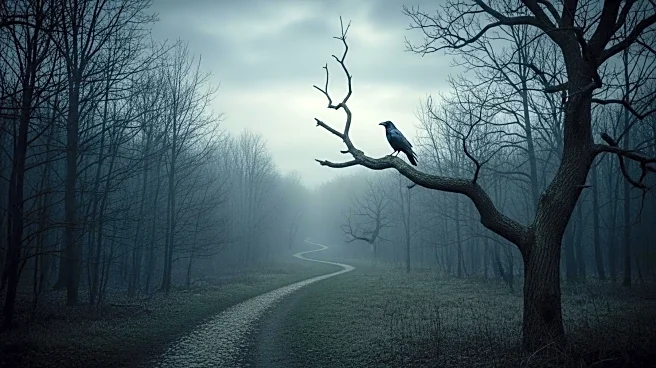What's Happening?
Stephen King's dystopian novel 'The Long Walk' has been adapted into a film directed by Francis Lawrence, known for his work on the 'Hunger Games' series. The story, originally written by King in the late 1960s, revolves around a deadly competition where young men and teenage boys must walk continuously until only one remains. The film, which reduces the number of contestants from 100 to 50, is set in a vague time period and location, with minimal technology and a desaturated visual palette. The adaptation has received mixed reviews, with some viewers questioning the film's departure from the book's ambiguous ending and its philosophical undertones.
Why It's Important?
The adaptation of 'The Long Walk' highlights the ongoing interest in dystopian narratives and their cultural relevance. The film's exploration of themes such as survival, societal collapse, and human nature resonates with contemporary audiences, reflecting broader societal anxieties. The mixed reception underscores the challenges of adapting literary works to film, particularly those with complex themes and minimalistic storytelling. The film's release may influence future adaptations of King's works and similar dystopian stories, impacting the entertainment industry and audience expectations.
What's Next?
As the film continues to be screened, discussions around its themes and execution are likely to persist. The reception may influence the direction of future adaptations of Stephen King's works, as well as other dystopian narratives. The film's performance could also impact the careers of those involved, including director Francis Lawrence and screenwriter JT Mollner. Audience and critical feedback may lead to further analysis and debate within film studies and among fans of the genre.
Beyond the Headlines
The film's adaptation raises questions about the ethical implications of depicting violence and survival in entertainment. It also prompts reflection on the role of dystopian narratives in society, serving as both a cautionary tale and a mirror to current societal issues. The film's minimalist approach contrasts with the more elaborate production values of similar franchises, potentially influencing future storytelling techniques in the genre.











